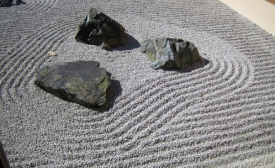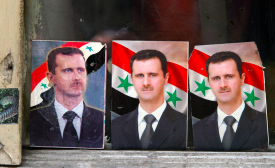soft power
The Australian elections today may not make global headlines, but as any Australia-watcher will tell you, politics "down under" is dramatic, passionate and almost Shakespearian in its endless narrative of unexpected betrayal, ruthlessness, revenge and the search for redemption. Today’s contest is between incumbent Prime Minister Kevin Rudd from the Labour Party and Tony Abbott, leader of the opposition Liberal and National coalition.
A nation's credibility is of course important in the conduct of foreign policy, but as a goal of military action, it has a troubled history. Focus on defending U.S. credibility in the mid-20th century blurred the difference between vital and non-vital interests, ultimately leading to American intervention in remote places like Korea and Vietnam.
One Hong Kong university and 15 in mainland China have made the list of the best places to study if you want to be chief executive officer of a global company. Polytechnic University was ranked 72nd out of 100 universities worldwide in the Alma Mater Index, a new study by Times Higher Education, which rates universities based on the studies of Fortune Global 500 CEOs.

Huffington Post readers may be familiar with Arianna Huffington’s campaign to redefine success away from the two metrics of money and power toward a third which includes well-being, wisdom, and our ability to wonder and give back. The old, masculine signifiers of success lead to burnout, sleep deprivation and general grumpiness. Businesses should instead take care of their workforce, and indeed encourage their workers to take care of themselves.
Huffington Post readers may be familiar with Arianna Huffington’s campaign to redefine success away from the two metrics of money and power toward a third which includes well-being, wisdom, and our ability to wonder and give back. The old, masculine signifiers of success lead to burnout, sleep deprivation and general grumpiness. Businesses should instead take care of their workforce, and indeed encourage their workers to take care of themselves. A healthy, happy, motivated workforce should be a symbol of success in its own right.
As a committed advocate for soft power and public diplomacy, I look for ways other than military force to address even the most pernicious international behavior. Usually, talking is better than fighting and wise use of political power can make unnecessary the reliance on “kinetic action,” as military thinkers refer to combat. But there are times when a state’s actions are so outrageous and have so little chance of being altered by peaceful means that soft power measures should be set aside. On occasion, blowing things up is essential.

As a committed advocate for soft power and public diplomacy, I look for ways other than military force to address even the most pernicious international behavior. Usually, talking is better than fighting and wise use of political power can make unnecessary the reliance on “kinetic action,” as military thinkers refer to combat.
But there are times when a state’s actions are so outrageous and have so little chance of being altered by peaceful means that soft power measures should be set aside. On occasion, blowing things up is essential.
It often seems the more well-known a concept becomes, the less it is understood. Such was the case with Francis Fukuyama’s End of History theory, which proclaimed—quite accurately thus far— that the end of the Cold War was also the end of the Hegelian dialectic struggles between opposing universalistic worldviews. With communism and fascism discredited that world was left with only one remaining self-proclaimed universal ideology, that of liberal democracy.







